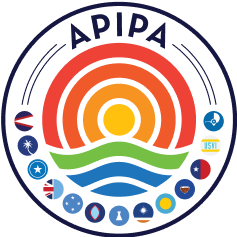APIPA 2024 Courses
The APIPA 2024 Conference is offering twenty-one courses in plenary, general and technical tracks from August 26 to August 30, 2024. Two concurrent courses will be offered Monday-Friday; participants may only join one of those courses on each of those days.
Plenary
In this session, we will delve into the importance of strategic oversight and how it can be used by individuals and organizations to achieve desired outcomes. We will provide case studies of how oversight has been used to move the needle - from audit recommendations and follow-up to best practices on working with oversight professionals, and our new training related to investigations and combatting fraud in the Pacific Islands. This session will provide practical tips and advice on how to harness the power of strategic oversight for success.

Matt Elliott
Washington, DC

David House
Denver, CO

Kathleen Sedney
Washington DC
Plenary
The closing plenary will feature short presentations and a panel discussion with APIPA member offices. These presentations and discussion will highlight examples of current work and provide a template for next steps for accountability and auditing in the region. Graduate School USA instructor, Mr. Drummond Kahn, will facilitate the session

Drummond Kahn
Portland, OR
Track A
Creative and Critical Thinking for Auditors explores why creative and critical thinking are essential tools of auditor providence that should be applied throughout all phases of the audit process. The class will discuss personal and organizational challenges to creative thinking and change, and ways to overcome the natural resistance to change for breakthrough ways of seeing root causes of problems and considering new possible solutions. This course will include brain training exercises and tools to get participants to think more abstractly to look beyond the obvious, to challenge the status quo, and to use process techniques for generating new ideas for action. This class will explore the power of “why” in looking for root causes of problems, and the power of the possible in considering new opportunities and threats for forward-thinking recommendations.

Michael Binder
Washington, DC
Track A
The Grants Management Skills course will focus on the use of communication, leadership, and teamwork skills for improved program outputs and outcomes. This course will be informative for administrative, finance, and program staff from organizations that are involved with grant implementation. Participants will be provided information about how to improve the acquisition process and avoid common grants management and financial management issues. Students will gain knowledge on how to find resources and learn about what is necessary to stay in compliance with managing grants. This course “builds” from each day to the next.

David Rykken
Washington, DC
Track A
This session will discuss the various types of audits that are currently performed, why each type of audit has a specific purpose, the various standards that apply to audits, the various reporting requirements, and some basic auditing techniques related to various transactions classes, account balances, disclosures and other events.

Frank Crawford
Oklahoma City, OK
Track A
The potential for bribes and kickbacks, whether in the private or public sector, is inherent in virtually every business transaction. Recent research conducted by a major financial institution revealed that an estimated one trillion dollars a year is paid in bribes worldwide. Bribes, kickbacks and other kinds of payoffs constitute types of fraud, often referred to as corruption.
Get a strong introduction to (a) the provisions of law pertaining to fraud and corruption in the forms of bribes, kickbacks and other types of payoffs; (b) activities that are particularly susceptible to such forms of fraud; (c) the short-and long-term impact; and (d) the methods used to make illegal payments. Focus on strengthening your ability to recognize the indicators of bribes, kickbacks and other types of payoffs in the procurement area and on your ability to collect evidence that they may have occurred or have occurred. Participate in case studies involving the fraudulent activities of bribes, kickbacks and other types of payoffs.

David House
Denver, CO

Drummond Kahn
Portland, OR
Track A
Project management involves leading a team to achieve specific goals and meet success criteria within a set timeframe. Projects are challenged by constraints such as scope, time, and budget. This course teaches program management techniques to improve grant implementation. You'll learn time-tested strategies and practical tools to effectively scope projects, allocate resources, and stay within budget and timelines.

David Rykken
Washington, DC
Track B
In this session, we will explore the importance of accountability in the role of oversight professionals. The benefits of having a culture of accountability within an organization include increased transparency, improved decision making, and enhanced trust. We will discuss the key accountability principals and demonstrate how audit organizations have applied these concepts. The session will also include practical tips and strategies for setting clear expectations, promoting open communication, and implementing effective performance evaluation systems.

Kathleen Sedney
Washington DC
Track B
To meet Government Auditing Standards, performance audit findings and recommendations must be supported and properly documented by sufficient, appropriate evidence. Learn the types of evidence; the tests that evidence must meet; alternative methods for collecting and documenting each type of evidence, to include use of structured data collection instruments; and the benefits of referencing. Learn how your audit objectives and design strategy affect the evidence required to conduct an audit.

Drummond Kahn
Portland, OR
Track B
A key challenge in reporting the results of performance audits is to formulate the report message from the audit data. An additional challenge is to then compile and sequence the audit facts to support that message. Using alternative methods, gain hands-on practice in marshaling the evidence from your audit into findings that answer the audit objectives and present the details in an understanding and convincing manner. Using case exercises, learn to develop findings for compliance, process and control, accomplishment, and impact audits.

Drummond Kahn
Portland, OR
Track B
Selecting performance audits to conduct is like building a successful investment portfolio. Developing meaningful objectives helps ensure each audit efficiently and effectively achieves meaningful results. Together, selecting the right audits and clear objectives provide a return on investment that is highly valued, relevant, and meaningful to the stakeholders it serves. Explore techniques and factors for selecting and planning audits based upon measurable factors of risk, materiality, public interest, and public benefit as valued by its many stakeholders. You will identify stakeholder interest and needs, future opportunities, and external threats; apply a cost benefit approach using measures of outcome value to score proposals; and formulate compelling audit objectives leading to meaningful specific future-oriented recommendations of value.

Michael Binder
Washington, DC
Track B
This course provides a comprehensive framework to equip the participants with the skills and knowledge necessary to conduct effective audits of governmental entities. We will start with an introduction to governmental audits, governments audit standards and guidelines, and then take the participants all the way through the audit process with tips and tricks for concluding and reporting the results.

Frank Crawford
Oklahoma City, OK
Track C
This active 1½ day course provides an introduction to the basics of accounting and financial reporting for governmental entities. Participants will gain a working knowledge of fund types and categories and learn how to record routine transactions for governmental activities. Internal controls as they apply to the accounting cycle and good accounting practice will be emphasized throughout the course. The session emphasizes hands-on practice in the accounting cycle process, from recording a transaction to preparing financial statements. Participants will leave the course with a more complete understanding of accounting terminology, the recording process, the role played by reconciliations, and the preparation of financial statements. No advanced accounting knowledge is necessary.

Jeanne Yamamura
Reno, NV
Track C
As an auditor/leader you are you faced with tough decisions about how to handle sensitive situations and critical choices in your mission to seek the best possible outcome among competing priorities. Explore the ethical hazards and dilemmas facing auditors and leaders and review methods of analyzing and resolving them in this participative workshop. Come away with a skill set for dealing with the common, right vs. wrong hazards (temptations) and the more difficult right vs. right conflicts or dilemmas that leaders regularly face. Also, learn ways to mitigate the risks, fortify the courage associated with carrying out ethical decisions, and review how to integrate effective ethics control systems into an organization.

Michael Binder
Washington, DC
Track C
The Performeter is an analytical tool that takes a government’s financial statements and converts them into useful and understandable measures of financial performance. The Performeter uses financial ratios and a copyrighted analysis methodology to arrive at an overall rating of 1-10, which indicates the overall financial health and performance of a government. Since 2002, PITI-VITI has been developing Performeters annually for each of the insular areas. As a result, multiple years of cumulative data is now available for each government. In addition to being able to track overall scores, the Performeter can also be used to track individual trends within ratios: Net Position, Fund Balances, Revenue Dispersion, Intergenerational Equity, etc. This session will describe the Performeter tool, highlight recent results by insular area, and consider next steps for island governments' financial health and performance.
This session will also take a detailed look into more recent GASB standards that have been issued and are either applicable or will be in the near future, including GASB 87 on Leases, GASB 96 related to Subscription-Based Information Technology Arrangements (SBITA), Statement 94 on Public-Private or Public-Public Partnerships (P3s), Statements 100-103, and including the financial reporting model improvements. In addition, this session will take a look at the future of standard-setting and where the GASB will most likely be going next.

David Bean
Springfield, IL

Frank Crawford
Oklahoma City, OK
Track C
The Infrastructure Investment and Jobs Act (IIJA) provides $1.2 trillion in federal spending over the next five years mostly in grants and contracts to states and local governments for Public Transit, Railways, Power Grids Electric Vehicles. Electric buses, Ferries, Airports, Waterways, Climate change, Broadband Internet, Environmental Protection, Drinking Water, and Transportation Safety. This program of fast-moving money, with untested controls provides vast opportunities for fraud and waste. Auditors, investigators, special agents, grants, and contract managers at all levels of government will need to be especially vigilant of possible schemes and red flag indicators of fraud that robs the public of funds and performance

Michael Binder
Washington, DC
Track D
This seminar will include a discussion of the components of a fraud investigation program, how to identify fraud, and what to do when you find it. We will discuss developing policy, clarifying your authority and budget, identifying staff and support. We will then discuss how to find fraud, by learning how to assess organizational vulnerability to fraud, how to build sources, how to be proactive, and give an overview of fraud schemes and what investigations of those schemes might look like in the wild. We will include classroom exercises and actual case discussion.

Matt Elliott
Washington, DC

David House
Denver, CO

Katharine Kovacek
Colorado
Track D
This seminar will build on the Basics of Investigations discussion. We will discuss what to do with allegations: the importance of timely responses, how to manage intake, how to analyze and assess fraud complaints, and what steps to take upon receiving fraud complaints. We will then discuss investigative planning: the importance of creating an investigative plan, how to scope your investigation, clarifying objectives and the importance of setting a timeline. We will include table exercises where attendees assess complaints and draft an investigative plan. Building on our investigative plan in the afternoon, we will discuss how to Identify relevant documents and other evidence, how to collect them, how to analyze them and how to use them to build an investigation. We will then discuss how to conduct fraud interviews: the difference between witnesses and subjects, how to organize multiple interviews, how to plan an interview, how to build rapport, and how to go over interview techniques for tricky subject interviews. We will include table exercises in which attendees will review documents, brief their conclusions, and role-play a subject interview.

Matt Elliott
Washington, DC

David House
Denver, CO

Katharine Kovacek
Colorado
Track D
Understand the full grants management process, the current regulatory requirements governing grants, and the role of auditors in developing strategies for assessing compliance and performance. Develop audit objectives and procedures to identify issues and recommendations for constructive feedback, corrective action, and accountability. Learn the stages of effective grants management from award, monitoring, audit, and close-out. Practice strategies for auditing, applying cost principles performance measurement, and reporting through each grant stage by using those strategies in case studies.

David Rykken
Washington, DC
Track D
This full-day course addresses compliance requirements and includes coverage of the Single Audit, findings, and corrective action plans. The grant reporting function and process are also reviewed as are the links to the governmental accounting system. Participants will leave the course with improved knowledge and skills in understanding the Single Audit Report and taking appropriate action.

Jeanne Yamamura
Reno, NV
Track D
Human health and the environment are important considerations no matter where you live. Governments are increasing their focus on environmental concerns which can lead to an increase in funding in environmental programs, the creation of new programs, or expanded responsibilities in existing programs.

Beth Schubert
Lakewood, CO
 +1.808.523.1650
+1.808.523.1650





 CONTINUE
CONTINUE